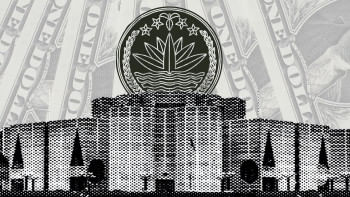The new cabinet must bring down food prices

We welcome the prime minister's call to different ministers to take steps to lower the prices of essentials. The PM stressed that the government must ensure that middlemen are unable to manipulate the market, which is one of the leading causes behind inflation persisting in Bangladesh. Despite most South Asian nations succeeding in reigning in inflation in 2023, Bangladesh has failed to do the same, much to the chagrin of citizens. Even Sri Lanka, which witnessed one of its worst economic crises since independence, brought down consumer prices following an unprecedented spike. Bangladesh, on the other hand, witnessed an average increase in the Consumer Price Index (CPI) of 9.42 percent in November.
People have suffered tremendously as a result, despite global prices of commodities falling in recent months. This clearly shows that the recent inflation surge has been driven not so much by external factors as by internal issues. These include a 28 percent depreciation of the taka against the US dollar since February last year, and persistent foreign currency shortages, driven by a 30 percent drop in the reserves, leading to import restrictions. Economists have blamed the central bank for not using monetary tools the way other central banks did around the world. Meanwhile, they have also blamed regulators for not being able to stop big players in the food supply chain from misusing their market power to gouge prices.
Even in December, inflation remained at more than 9 percent for the 10th straight month. Though it eased a bit due to the arrival of winter vegetables, market trends suggest that prices of food have not fallen, rather the rate of price increase has slowed down due to supply-side factors. The persistence of corruption and high public expenditure, in the form of unnecessary cost overruns of projects and operating costs, means that the government's fiscal policy has also failed to align with the target of lowering inflation.
All the measures taken to bring down inflation have either been too late, or too inefficient. Therefore, the PM's demand to see results from different ministries is a timely one. The fact that she also talked about addressing corruption and irregularities is equally important. We, therefore, hope that concerned ministries will take heed of her message, and ensure transparency and accountability in governance which can help prices to finally come down.


 For all latest news, follow The Daily Star's Google News channel.
For all latest news, follow The Daily Star's Google News channel. 










Comments